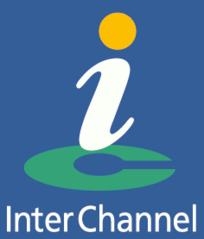Difference between revisions of "NEC Interchannel"
From NEC Retro
| Line 17: | Line 17: | ||
{{CompanyHistoryAll|NEC Interchannel}} | {{CompanyHistoryAll|NEC Interchannel}} | ||
[[Category:Use CompanyHistoryAll template]] | [[Category:Use CompanyHistoryAll template]] | ||
| + | ===[[PC-9801]]=== | ||
| + | *''[[Pixy Garden]]'' (1995) | ||
===[[Super CD-ROM²]]=== | ===[[Super CD-ROM²]]=== | ||
| Line 26: | Line 28: | ||
===[[PC-9821]]=== | ===[[PC-9821]]=== | ||
| − | *''[[Schwarzschild GX]]'' ( | + | *''[[Schwarzschild GX]]'' (1997) |
==References== | ==References== | ||
Revision as of 22:04, 5 December 2022
This short article is in need of work. You can help NEC Retro by adding to it.
NEC Interchannel (NECインターチャネル) was a software development division of NEC, created after a merger between the games department of NEC Avenue, parts of NEC Home Electronics and another NEC division in 1995.
Interchannel was NEC's last meaningful foray into video game software development, and was more often seen publishing titles for the Sega Saturn (later Dreamcast), PlayStation and Windows PCs during the late 1990s. Most of the first-party PC Engine and PC-FX publishing continued to be handled by NEC Home Electronics, and much like its relationship with NEC Avenue, the two are frequently confused.
The vast majority of Interchannel's products have never left Japan.
Softography
PC-9801
- Pixy Garden (1995)
Super CD-ROM²
- Puyo Puyo CD Tsuu (1996)
- De-Ja (1996)
PC-FX
- Tenchi Muyou! Ryououki FX (1996)
PC-9821
- Schwarzschild GX (1997)
References
Sega Retro has more information related to NEC Interchannel
|

